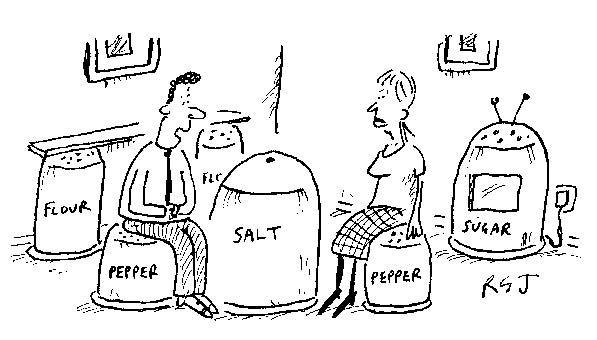Writing an autobiographical account of middle age is a brave undertaking, necessitating a great deal of self-scrutiny at a time of life when most of us would sooner look the other way and hope for the best. Jane Shilling took up riding relatively late (she even joined a hunt, as described in her book The Fox in the Cupboard), so she has physical daring. The Stranger in the Mirror shows that she also has emotional and intellectual courage.
Unsurprisingly, the news is not good. God and gardening are the traditional refuges of the menopausal, but neither seems to hold much interest for Shilling. Romantic entanglements seem unlikely and her teenaged son is advancing towards independence: solitude looms. Career prospects diminish. Looks aren’t what they used to be. Regrets prosper. She fears, in a chilling phrase, ‘an inability to be delighted’. Her clothes look peculiar on her. Shilling is particularly good about the strange mutiny of her wardrobe:
The disjunction between the person I felt myself to be inside and the person my clothes announced me to be was intensely disconcerting — a sort of sartorial aphasia, as disturbing as finding oneself suddenly unable to communicate in a language one had once spoken fluently.
This will be all too familiar to readers of a certain age. I remember the exact moment when it happened to me, in the changing room of a dress shop where I was trying on a frock. I knew better than to attempt a frill or a flounce, but this was a fairly sober item, navy blue with white spots. Famously, middle-aged women report the shock of seeing their mother staring back in the glass, in place of the girl they once were. But it wasn’t my mother. I would have been glad to see my mother. Instead, I seemed to have raised the dead: for there reflected in a suddenly excruciating froth of polka dots was someone who looked just like the late Bubbles Rothermere.
It is at this point that women face the stark choice between the grey cardigan and Barbara Cartland pink, the one promising effacement and modesty, the other pseudo-cheer. Shilling doesn’t go into this dreadful fashion dilemma, which is a rare case of shirking on her part. But this is a literary book — Virginia Woolf is much mentioned; Chaucer’s Wife of Bath invoked — not a self-help guide. The comedy aspects of middle age are mostly absent, too; perhaps wisely, for who could hope to compete with Nora Ephron’s masterly and hilarious I Feel Bad About My Neck, a volume no woman over 40 should be without?
It is in stories that Shilling hopes at first to find answers to the problems of her age. She looks for middle-aged women in Middlemarch and A Portrait of a Lady, in Jane Austen and Mrs Gaskell and, of course, Colette. She quotes Angus Wilson’s horrible observation that middle age is a form of exile. She makes the interesting point that HRT has not spawned a flowering literature. In general, she finds that well-realised middle-aged women are rather thin on the ground. The hideous truth may be that the withered crones of literature are not as old as Shilling may suppose: Miss Haversham, for instance, is only in her fifties. (Had she looked to cinema, only last year she would have found a brilliant allegory of middle age, Homeric in form, Shakespearian in scope: Toy Story 3.)
Once she leaves her books aside and writes about her own experience, the book becomes fascinating. Jane Shilling is an outstandingly good writer. Her descriptions of the Kentish landscape, of her grand- parents’ cheerless bungalow, of the pleasure of a London park in summer are marvellously evocative. Recalling a summer’s afternoon in childhood, shelling peas in the garden, she describes her mother’s legs:
their skimmed-milk pallor etched with a tracery of bluish-purple veins; the toenails sticking out of her flat navy sandals are ridged like limpet shells, the skin of the heels is cracked like old cheese.
One of the main ways in which the middle aged define themselves is in relation to others: as a daughter, a wife, a mother or grandmother. Jane Shilling has never been married and is apparently estranged from her parents. Her only child is a son, whereas it may be that middle age is easier to accept for the mothers of daughters. Without these familial anchors, she is unmoored. That she finds herself so unencumbered allows her to be especially clear-sighted about her age: her loss is the reader’s gain.
But I was left longing to know more about her family: does she have brothers or sisters? Why the non-speaks? Why the flight from home to the kind hospitality of her Latin teacher? Why weren’t her parents delighted with their evidently clever, interesting and beautiful daughter?
I hope that Jane Shilling, so adept at describing middle age, will one day write the book which recounts her early years and supplies the answers.





Comments